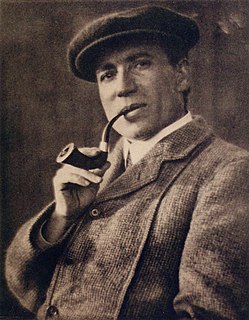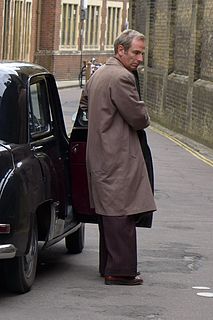A Quote by Saint Teresa of Avila
My father was a man of great charity towards the poor, and compassion for the sick, and also for servants; so much so, that he never could be persuaded to keep slaves, for he pitied them so much: and a slave belonging to one of his brothers being once in his house, was treated by him with as much tenderness as his own children.
Related Quotes
A certain monk told me that when he was very sick, his mother said to his father, "How our little boy is suffering. I would gladly give myself to be cut up into pieces if that would ease his suffering." Such is the love of God for people. He pitied people so much that he wanted to suffer for them, like their own mother, and even more. But no one can understand this great love without the grace of the Holy Spirit.
His brothers could tease him about his height or the number of scars he was collecting on his body. He could take the joke when they said he would die having never won a fair wrestling match. But the topic of Bettin still smarted too much. He'd imagined being with her always. Now when he closed his eyes, he had trouble imagining anything else.
Now let's move on to the subject of how a real man treats his wife. A real man doesn't slap even a ten-dollar hooker around, if he's got any self-respect, much less hurt his own woman. Much less ten times over the mother of his kids. A real man busts his ass to feed his family, fights for them if he has to, dies for them if he has to. And he treats his wife with respect every day of his life, treats her like a queen - the queen of the home she makes for their children.
Mother's father and brothers all took great interest in pugilism, and they knew the game well from much practice of their own. They were never so much delighted as when I visited them with a black eye or a bloody nose, at which time they would be at the trouble to give cunning points as to how to meet an opponent according to his weight and height.
At one point, for example, [Donald Trump] argued that he knew much more than military leaders about the pursuit and defeat of ISIS. His assuredness of his own correctness seems also rooted in arrogance reflecting his fundamental insecurity. This insecurity and his belief in his own rightness, when combined with his success at making money, leads him to be self-reliant in his decision-making, which could result in his taking risks with threatening or using nuclear weapons.
The evil of the actual disparity in their ages (and Mr. Woodhouse had not married early) was much increased by his constitution and habits; for having been a valetudinarian all his life, without activity of mind or body, he was a much older man in ways than in years; and though everywhere beloved for the friendliness of his heart and his amiable temper, his talents could not have recommended him at any time.
We commend a horse for his strength, and sureness of foot, and not for his rich caparisons; a greyhound for his share of heels, not for his fine collar; a hawk for her wing, not for her jesses and bells. Why, in like manner, do we not value a man for what is properly his own? He has a great train, a beautiful palace, so much credit, so many thousand pounds a year, and all these are about him, but not in him.
And he arose and came to his father. But while he was still a long way off, his father saw him and felt compassion, and ran and embraced him and kissed him. And the son said to him, 'Father, I have sinned against heaven and before you. I am no longer worthy to be called your son. But the father said to his servants, 'Bring quickly the best robe, and put it on him, and put a ring on his hand, and shoes on his feet. And bring the fattened calf and kill it, and cet us eat and celebrate. For this my son was dead, and is alive again; he was lost, and is found.' And they began to celebrate.











































